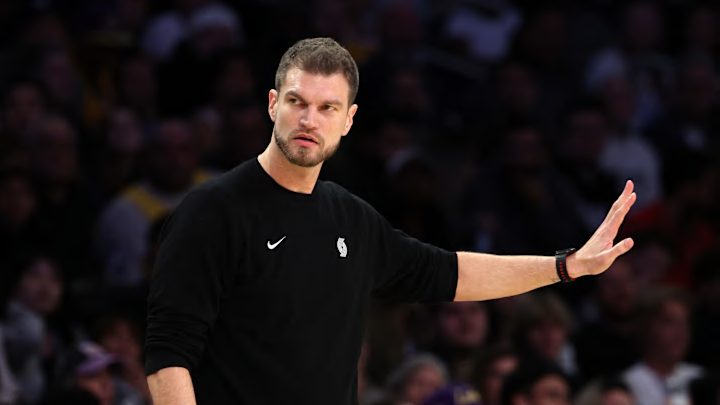Portland Trail Blazers interim head coach Tiago Splitter, like fellow former Paris coach Tuomas Iisalo (now head coach of the Memphis Grizzlies), has an extremely quick bench rotation, frequently making substitutions to keep players fresh.
It's certainly hard to argue with the results as Splitter has the Blazers at 5-3 with wins over teams like the Thunder, Warriors, and Lakers. But despite their record, flaws pertaining to Splitter's quick rotations have already been exposed early on.
Tiago Splitter's rotations are disrupting the Blazers' rhythm
The short leashes are a perfect fit defensively for a Blazers team that wants to win the possession battle and pressure opposing teams off the length of the court. However, the downside of this approach comes on the offensive end.
As Ja Morant will tell you, players need time to get into a rhythm. For the Blazers, one particular player who is negatively impacted is Shaedon Sharpe. He earned a starting spot due to his standout play this offseason, but has been disappointing to start the year, struggling with inefficient play, shooting just 37% from the field and 26.3% from beyond the arc.
While Sharpe himself should be responsible for this poor productivity, Splitter's rotations aren't making his life any easier. The silver lining is that Sharpe is much more bought in defensively this season, utilizing his positional size and elite athleticism. Still, it's going to be hard to justify his contract extension if he's unable to substantially improve his shooting efficiency.
This is an issue that could become even more problematic as the Blazers get healthier, with rotations potentially being even shorter when Splitter has more backcourt options like Scoot Henderson at his disposal.
Then, there's Donovan Clingan. He drastically improved his conditioning this offseason with hopes of playing 30-plus minutes a night in a starting role with Deandre Ayton now out of the picture. Clingan has been as advertised for Portland with his interior presence defensively, but is still only playing 24.6 minutes a game.
As a result of the fast pace and quick rotation stints, the Blazers aren't necessarily playing to their strengths as often as they should. Clingan is the anchor that elevates Portland from a good to an elite defense. For example, we recently saw Ayton get his revenge with a 29-point performance in Portland. Clingan played just 18 minutes.
It's a fine line as Splitter is clearly pushing some of the right buttons for this up-and-coming Blazers team. Their defensive versatility and transition opportunities fit perfectly with these hockey-like substitutions. At the same time, the Blazers must realize that leaning too heavily into this approach is counterproductive if it means players like Clingan can't even touch the court, Sharpe fails to find his rhythm, or rookie Yang Hansen becomes unplayable due to his lack of fit.
Overall, the Splitter experience has been positive for Rip City, as he's already making a compelling case to remain as their permanent head coach. He just needs to find a better balance going forward to fully unlock this roster and get them back to the postseason.
